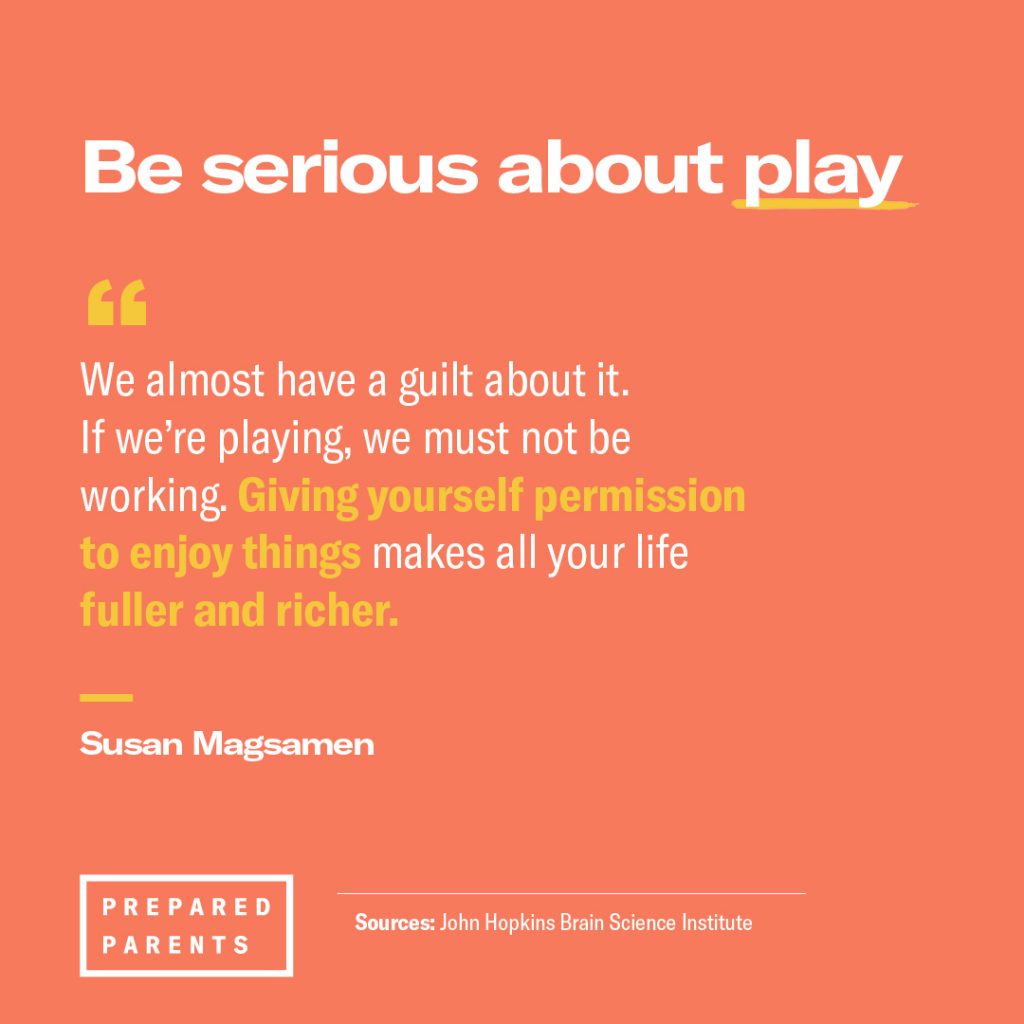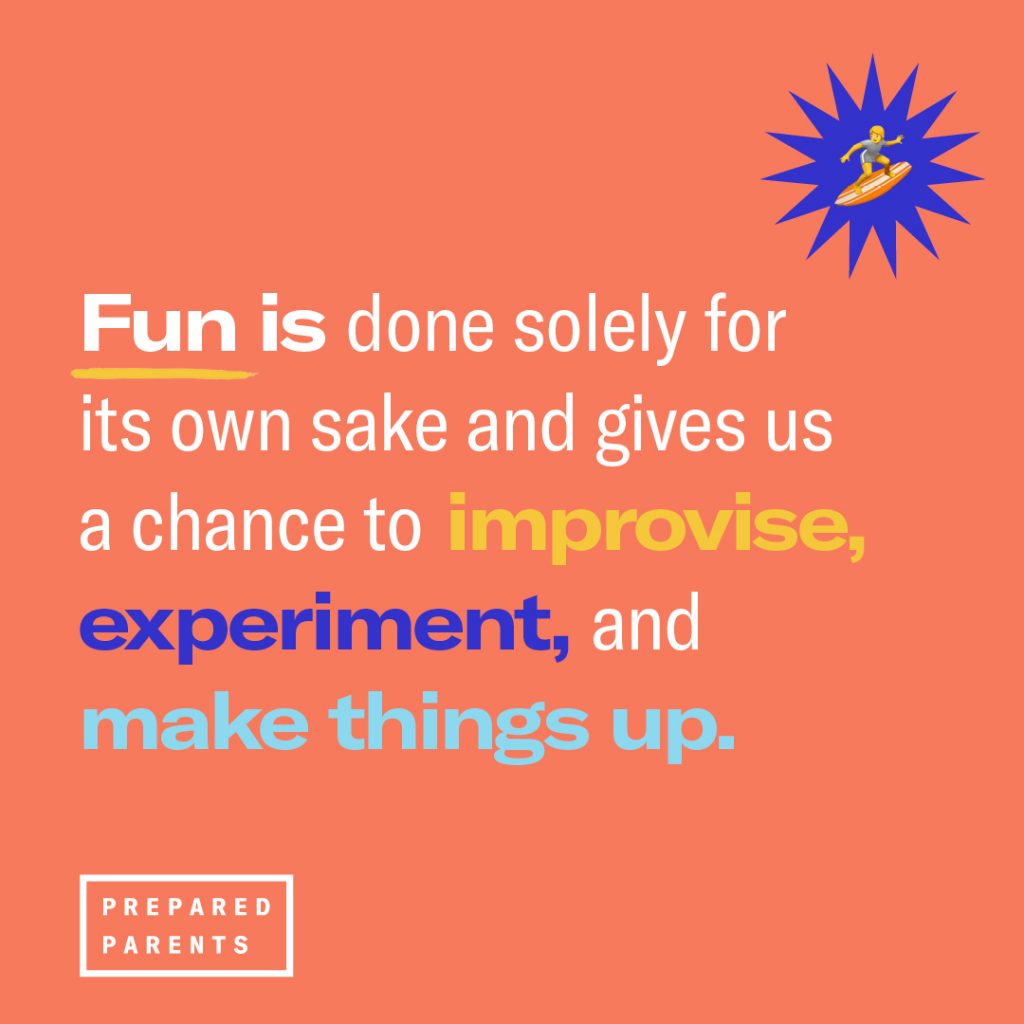Play is serious business. As you set your goals for today, schedule some time to play. Have fun and be intentional about creating moments of joy.

Play with no guilt; it is valuable to our children in so many ways. Play is typically self-directed and tends to use the imagination, allowing kids to practice habits and skills they’ll use throughout their lives, in an intrinsically motivating way. To kids, the value is in the activity, not in an end result.
And kids are learning through play. When kids play together, which is known as social play, they are learning not only the rules that govern social interaction, but also how to adapt to different interactions. They learn the art of teamwork, collaboration, and even making decisions through consensus.
Activities like creating art, exploring new places, performing charitable acts, and learning are all deeply pleasurable. While fun can be vague and highly subjective, it is important and well worth engaging in. Freedom and self direction are key elements of play. Though parents can make suggestions to their kids, kids have more fun when they’re making the decisions. It’s also an opportunity for kids to try out being an adult and is a wonderful step towards following their curiosity and discovering a new passion.
You won’t necessarily find the word “FUN” in learning science. But that doesn’t mean that education psychologists haven’t proven the power and benefits of play to kids and adults. Like sleep, play is a separate biological state. It’s done solely for its own sake and gives us a chance to improvise, experiment, be curious, and have fun. There are so many benefits:
- We feel freedom.
- We problem-solve.
- We develop empathy.
- We try on being an adult.
- We experience true self-direction.

All large-brained mammals and, according to some authorities, birds, share the ability to play. That’s what biologists and psychologists use as the broad term denoting almost any activity that is not work and is not serious. Play is beneficial and the lack of it could have detrimental effects. A study of successful, creative people shows that social play was a vital part of their healthy development. Emotional control, social competency, personal resiliency, and curiosity are all developed through play.
As you set your daily goals, schedule some time to play and have fun. You won’t be wasting time; in fact, you’ll be making the most of it.
Need ideas? Here are some suggestions for playing as a family:
- Living room game show. Ask your kids to come up with a premise. What’s the object of the game? Is it a team competition or individuals. What’s the prize for the winner?
- Your own version of American Idol or They’ve Got Talent. This can become a global event. Invite friends and relatives to join a Zoom talent show. Grandparents or other relatives can be the judges.
- Stand up comedy routine. Ask your kids to write some jokes and do a stand up routine for the family. You can Zoom this to relatives, too.
- Dress-up charades. Use clothes and objects from around the house dress up like characters in favorite books or movies. It’s a different version of charades.
- Eating or Cooking competition.
- Backyard or indoor obstacle course.
- Family trivia. Compete to see who knows the most about the family.
- Word search. Use the books you have.

